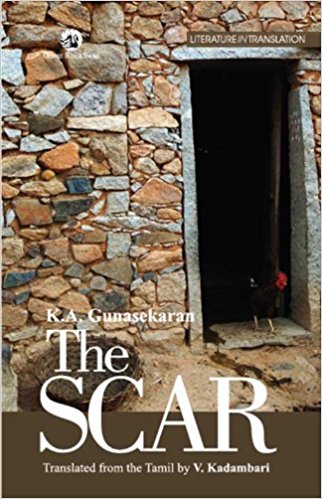Leonard Cohen wrote, ‘Children show scars like medals. Lovers use them as secrets to reveal. A scar is what happens when the word is made flesh.’ Gunasekaran’s multiple scars portrayed cleverly in his autobiography are not just proud medals and revealed secrets, they are the history of an individual and a community. When I had first read Vadu (the Tamil original) a few years ago, I felt I was listening to my dad’s story, to my lover’s story, to almost every other rural dalit’s story. There was untouchability, there was discrimination, but the most indelible early memories of hardship was the constant struggle against hunger. Born into a large family of six children, much of Gunasekaran’s novel is devoted to his poverty-stricken childhood. There is a narrative of eating snails for sustenance, and a remark that simple food-items like dosa or idli were only seen on festival days. This is a story that I have heard in the first-person, again and again, and irrespective of how often I hear it, the hurt is fresh.
His father is a teacher in Salaiyur and the family lives in a predominantly Muslim neighbourhood in Elayankudi, where young Gunasekaran finds it easy to make friends. It is a childhood of singing songs during Christmas plays and learning the namaz from Muslim friends, a life of porous, permeable boundaries where religion is not a stringent rigidity. There are even Muslim benefactors who pay the school fees and buy notebooks for Gunasekaran and his siblings, out of respect for their father, and with knowledge of the family’s dire straits.

